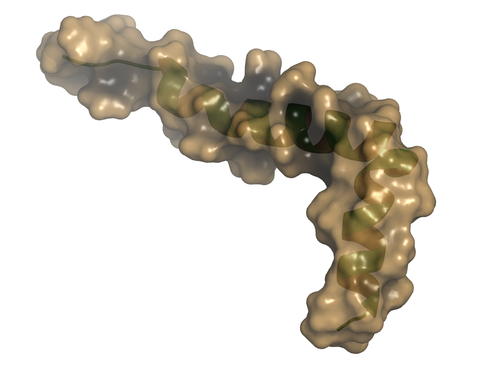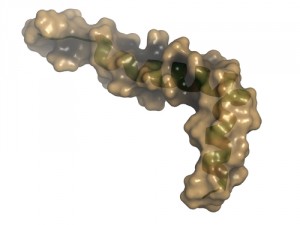Genetic Variant Identified As Risk Factor For Alzheimer’s
Written by |

 The identification of a genetic variant may lead to improved diagnostics for predicting the onset of Alzheimer’s disease.
The identification of a genetic variant may lead to improved diagnostics for predicting the onset of Alzheimer’s disease.
Amyloid-beta (Aβ) is the main component of amyloid plaques, i.e., extracellular deposits in the brains of patients with Alzheimer’s disease. Now, a new study entitled “Apolipoprotein E Genotype and the Diagnostic Accuracy of Cerebrospinal Fluid Biomarkers for Alzheimer Disease” published on August 27 in JAMA Psychiatry suggests that levels of amyloid beta-42 (Aβ42) in the Cerebral spinal fluid (CSF) associate with Alzheimer’s disease (AD) independently of the patients genotype for the apolipoprotein E (APOE) gene.
The APOE Ɛ4 genetic variant is a strong genetic risk factor for AD. While APOE Ɛ4 was shown to modulate CSF levels of Aβ42, the question that remained unanswered was if “this effect is secondary to the association of the APOE Ɛ4 allele with cortical Aβ deposition or whether APOE Ɛ4 directly influences CSF levels of Aβ42 independently of Aβ pathology.”
In this study, data collected from more than 1,300 adults from 4 memory centers in Sweden, Finland, and Germany showed that CSF levels and APOE genetic variants were both independently significant predictors of AD diagnosis.
[adrotate group=”3″]
A detailed analysis further demonstrated that APOE Ɛ4 allele in a group of participants with ages of 20 and 34 years without dementia, and older patients who exhibited symptoms of mild cognitive impairment (MCI) had no influence on the CSF levels of Aβ42.
The lead investigator Ronald Lautner, MD, from the Department of Psychiatry and Neurochemistry at the Institute of Neuroscience and Physiology at Sahlgrenska Academy at the University of Gothenburg in Sweden noted, “These data strongly suggest that CSF levels of Aβ42 reflect cortical Aβ deposition and not the APOE Ɛ4 genotype per se.”
“Consequently, the clinical cutoff level for CSF Aβ42 should be the same for all APOE genotypes,” added the researchers.





